Celebrities and microphones
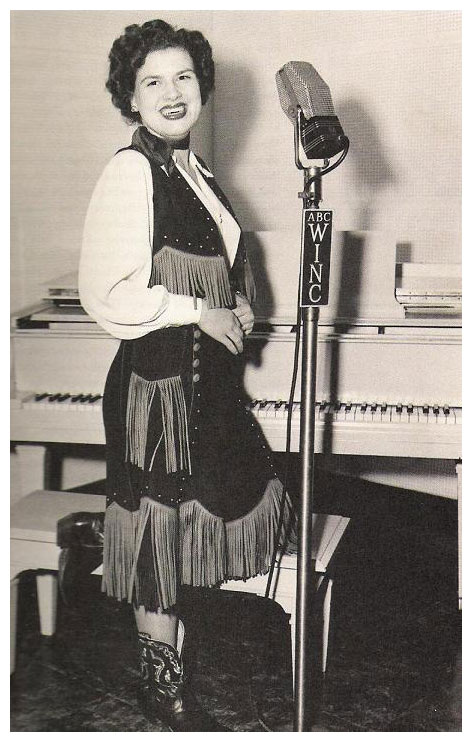
Patsy Cline.
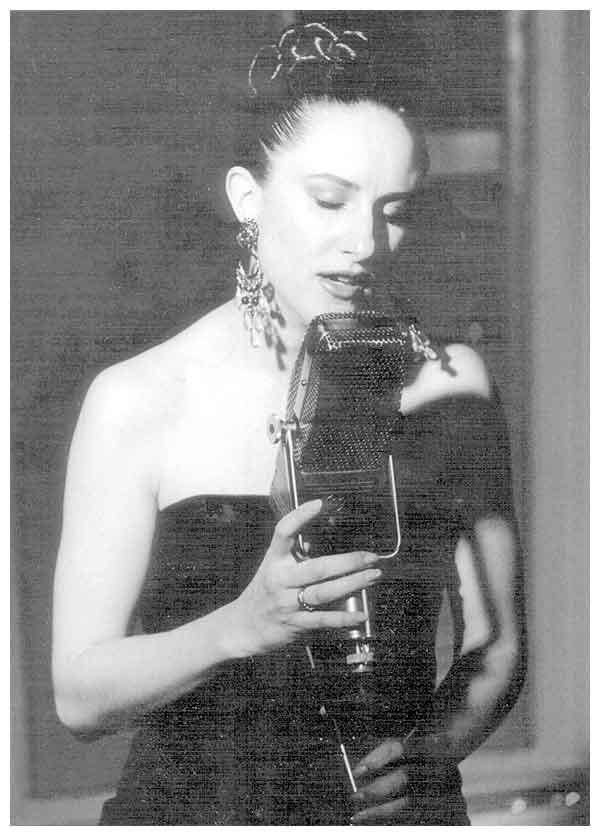
Australian jazz vocalist Leonie Smith.
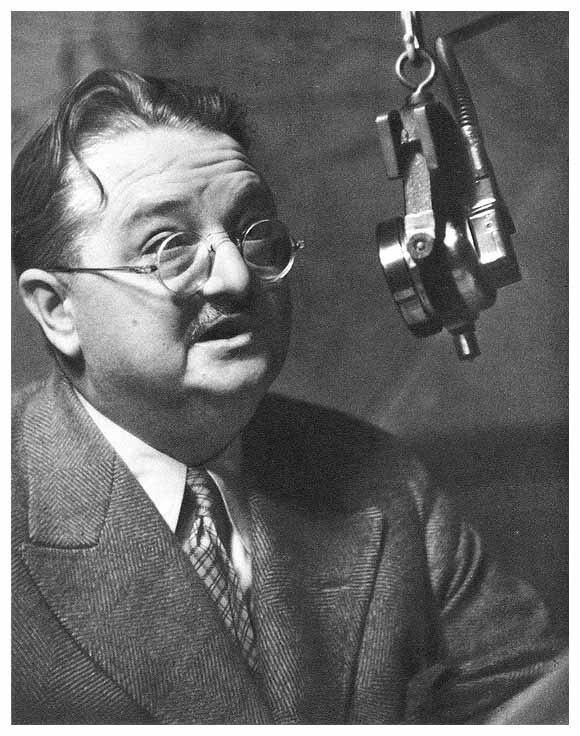
Alexander Humphreys Woollcott (January 19, 1887—January 23, 1943) was a critic and commentator for The New Yorker magazine, and a member of the Algonquin Round Table. He was the inspiration for Sheridan Whiteside, the main character in the play The Man Who Came to Dinner by George S. Kaufman and Moss Hart. His review of the Marx Brothers’ Broadway debut, I’ll Say She Is, helped launch the team’s movie career. For many years he wrote a column called “Shouts and Murmurs” for The New Yorker, as well as being its drama critic. He was frequently criticized for his ornate, florid style of writing and, in contrast to his contemporaries James Thurber and S. J. Perelman, he is little read today.
Wolcott Gibbs, who often edited Woollcott’s work at The New Yorker, was quoted in Thurber’s book The Years with Ross as saying: “ ‘Shouts and Murmurs’ was about the strangest copy I ever edited. You could take every other sentence out without changing the sense a particle. Whole department, in fact, often had no more substance than a Talk [of the Town] anecdote. I guess he was one of the most dreadful writers who ever existed.”
He was also known for his occasionally savage wit. He once said about another contemporary wit and piano player: “There is absolutely nothing wrong with Oscar Levant that a miracle can’t fix.”
Woollcott graduated from Hamilton College in Clinton, New York, and is fondly remembered there. In his early twenties he contracted the mumps, which left him mostly, if not completely, impotent. He never married or had children, although he had a large number of female friends.
Woollcott called for normalization of U.S.–Soviet relations. He was a friend of reporter Walter Duranty and Soviet foreign minister Maxim Litvinov, and traveled to the U.S.S.R. in the 1930s.
Toward the end of Woollcott’s life he semi-retired to an island he had purchased on Lake Bomoseen in Vermont. He died in New York while participating in a 1943 radio program on the war in Europe, one of the few people in broadcast history to die while “on the air.”
From Wikipedia, the free encyclopedia
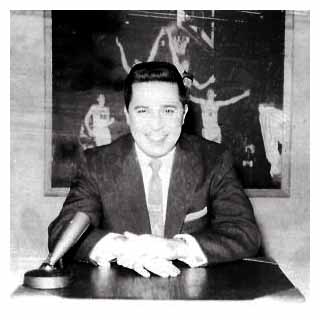
John Rayburn
Perennial broadcaster, quoted below.
“Many of the stars of the past are (or were) friends of mine, such as Fred Foy, long-time announcer for the Lone Ranger; Willard Waterman, the second Great Gildersleeve; Parley Baer, creator of the Chester role on radio Gunsmoke about four years before the show was on TV (he was the voice of the Keebler elf for 28 years); Dick Beals, the decades-long voice of Speedy Alka-Seltzer; noted sound effects specialist Ray Erlenborn (with Red Skelton for 10 years); and innumerable others. I interviewed Fibber McGee and Molly (Jim and Marian Jordan), Charles Correll (Andy of Amos ’n’ Andy), Bob Hope, Red Skelton, Gene Autry, etc., plus scads of music celebs from Tommy Dorsey to Woody Herman, Stan Kenton, Kitty Kallen, Les Paul, Helen Forrest, June Christy, Frankie Carle, Anita O’Day, Buddy Rich, Mel Torme and a seemingly endless list of others. Actors, you name ’em… Ronald Reagan when he hadn’t even been president of the Screen Actor’s Guild yet (he had returned to his home state of Illinois to crown the Pumpkin Festival Queen at Eureka College), Clark Gable, Leslie Nielsen, Elsa Lanchester and so on. I was a lucky sonofagun and did reports and appearances on Huntley-Brinkley News, Walter Cronkite News, The Today Show, NBC Monitor, NBC News on the Hour. At one point, as lead anchor, my TV newscast achieved the largest Share of Audience of any major market newscast in the nation. It was fortunate that I got to record dozens of books for the National Library Service via the Library of Congress and narrated a series of CD-ROMs on U.S. National Parks that were sold to National Geographic. We moved to Tennessee’s Cumberland Plateau about two years ago and until then I was doing a big band music show four hours a day, five days a week on radio. My broadcasting career has encompassed fifty-six years and hopefully, I’m not through yet because I’m putting together a package for possible radio syndication. You see, I’m not retired, I’m diversified.”
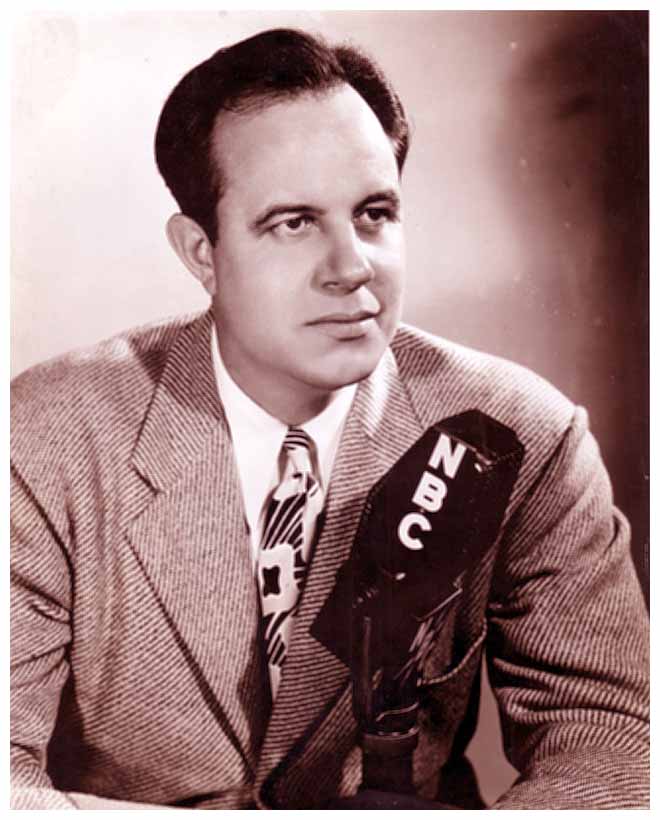
John “Jack” Mather. Mr. Mather had the starring role on the radio show “The Cisco Kid” from 1947 until 1959. He was the announcer for the radio program “The First Nighter” on CBS, as well as playing various bit parts on the program. He also appeared on many of the early Bob Hope radio shows as well as on the Jack Armstrong show. Mr. Mather had parts in numerous movies and television shows, and was known as the “Paramount Cop” due to his many roles as a policeman on the silver screen. Mr. Mather passed away on August 16, 1966.

George Burns and Gracie Allen.
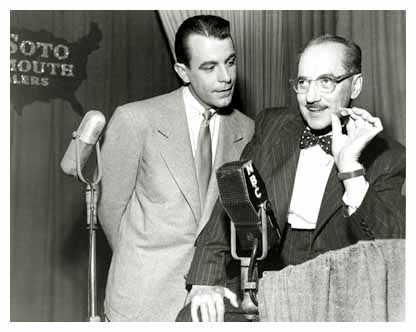
Announcer George Feniman and host Groucho Marx
on the set of Groucho’s quiz show, You Bet Your Life.
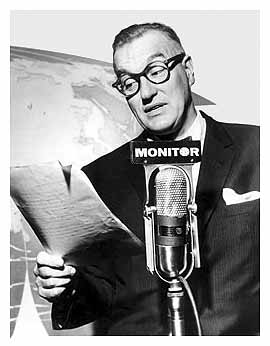
Host Dave Garroway on NBC’s Monitor.
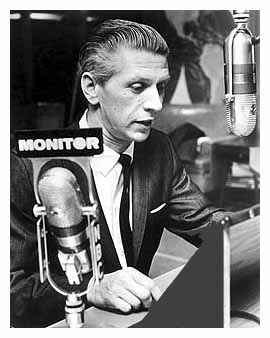
Host Wayne Howell on NBC’s Monitor.

Paul Howard, “The Arkansas Cotton Picker.”

Metropolitan Opera star Rise Stevens.
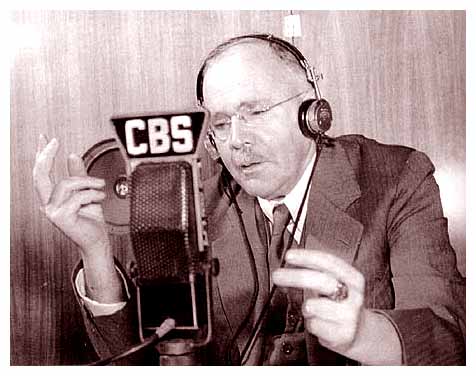
Newscaster H. V. Kaltenborn.
Details about Mr. Kaltenborn.
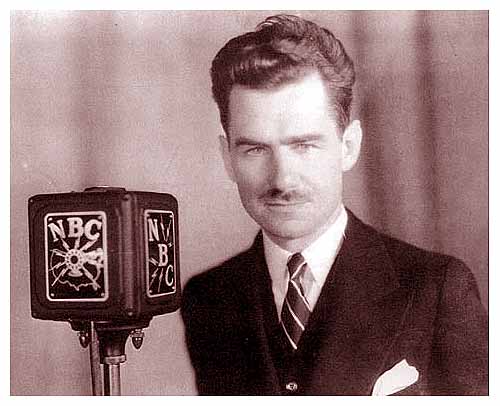
Commentator Lowell Thomas.

Announcer and commentator Milton Cross.
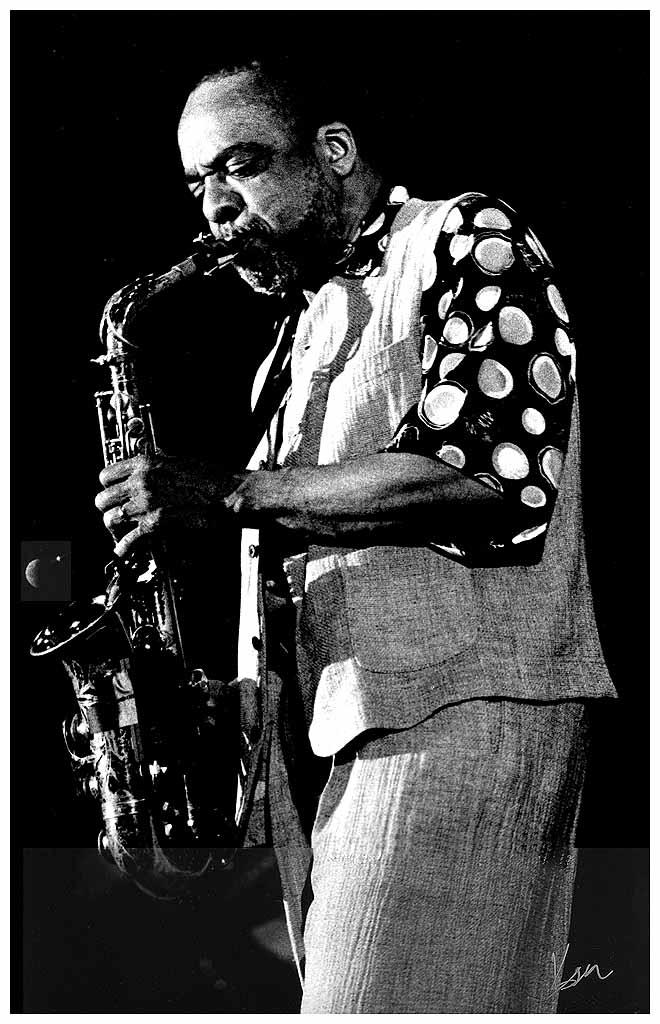
Grover Washington, Jr.
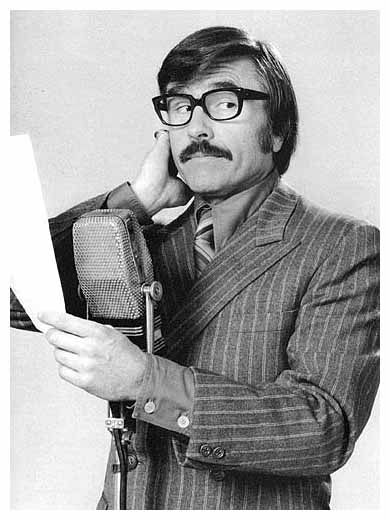
Announcer, performer, and music show host Gary Owens.
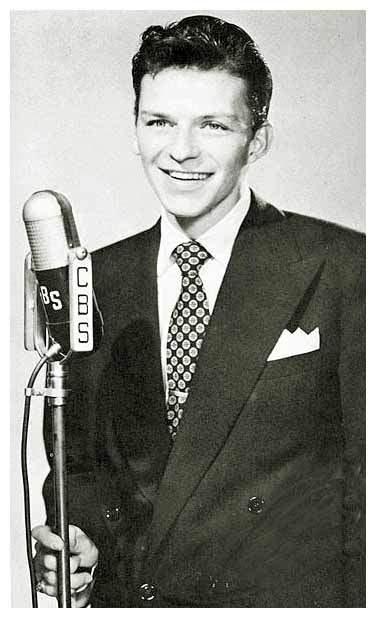
Frank Sinatra.
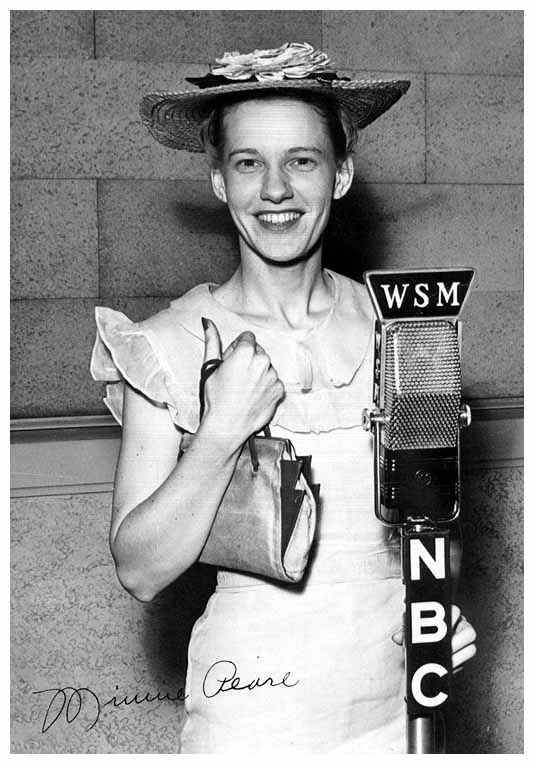
Minnie Pearl.
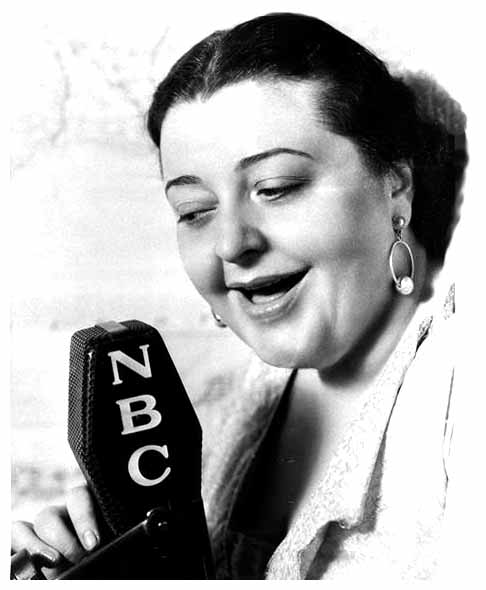
Vaughn De Leath.
Said to be the first woman to speak into a microphone (December 1919).
With a crooning technique, Ms. De Leath sang over various
Northeastern radio stations in the 1920s and 1930s.
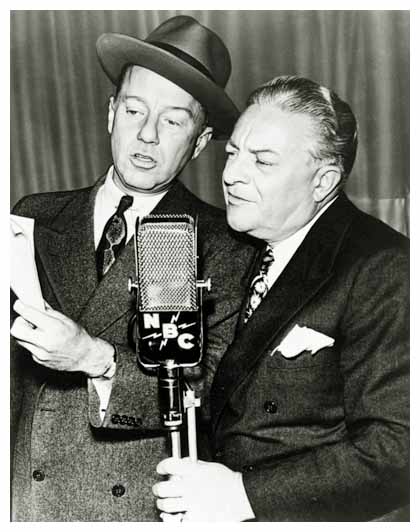
Freeman Gosden, Charles Correll.
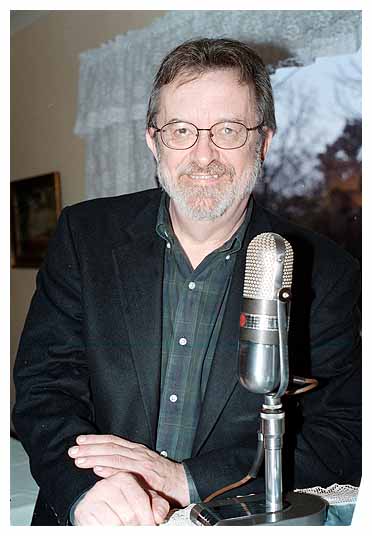
KUSC announcer and CBS film critic Jim Svejda.
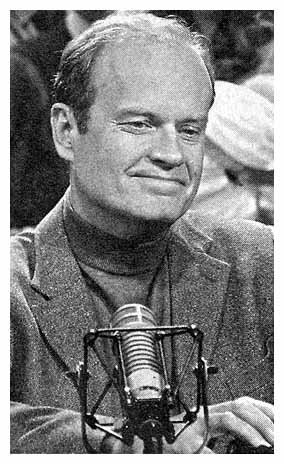
Kelsey Grammer.
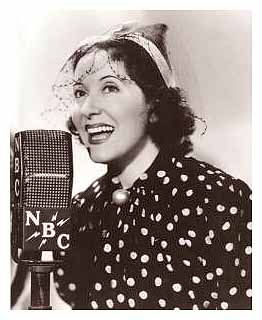
Gracie Allen.
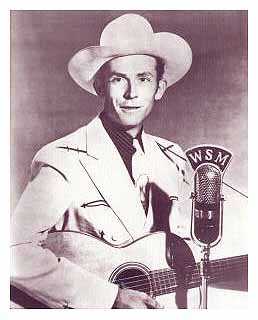
Hank Williams, Sr.
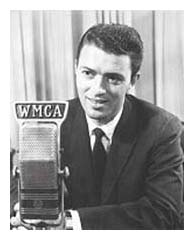
Scott Muni.
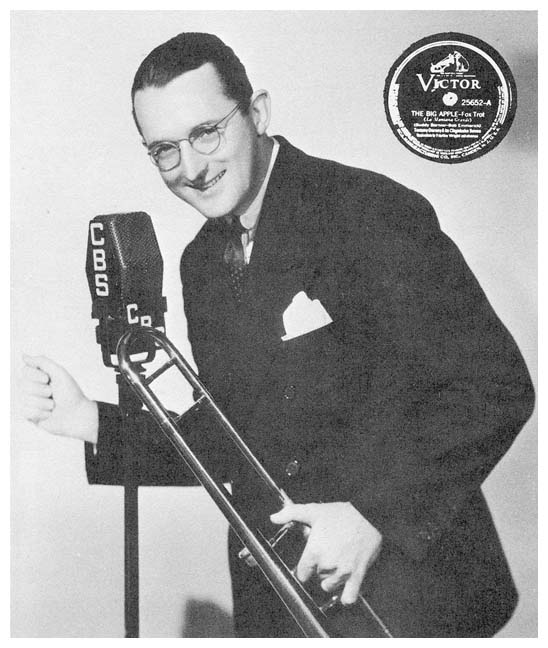
Tommy Dorsey.
—PHOTO CREDITS: Mr. Mather courtesy of Bob Andrews and Bill and Ginny Rittmueller.
Mr. Burns and Ms. Allen, Mr. Feniman and Mr. Marx, Mr. Thomas,
Mr. Cross, Mr. Owens and Mr. Sinatra courtesy of Lloyd Nesbitt.
Mr. Kaltenborn courtesy of the Columbia Broadcasting System.
Mr. Garroway and Mr. Howell courtesy of Dennis Hart.
Mr. Grammer courtesy of the Associated Press.
Mr. Washington courtesy of Ken Young.
|